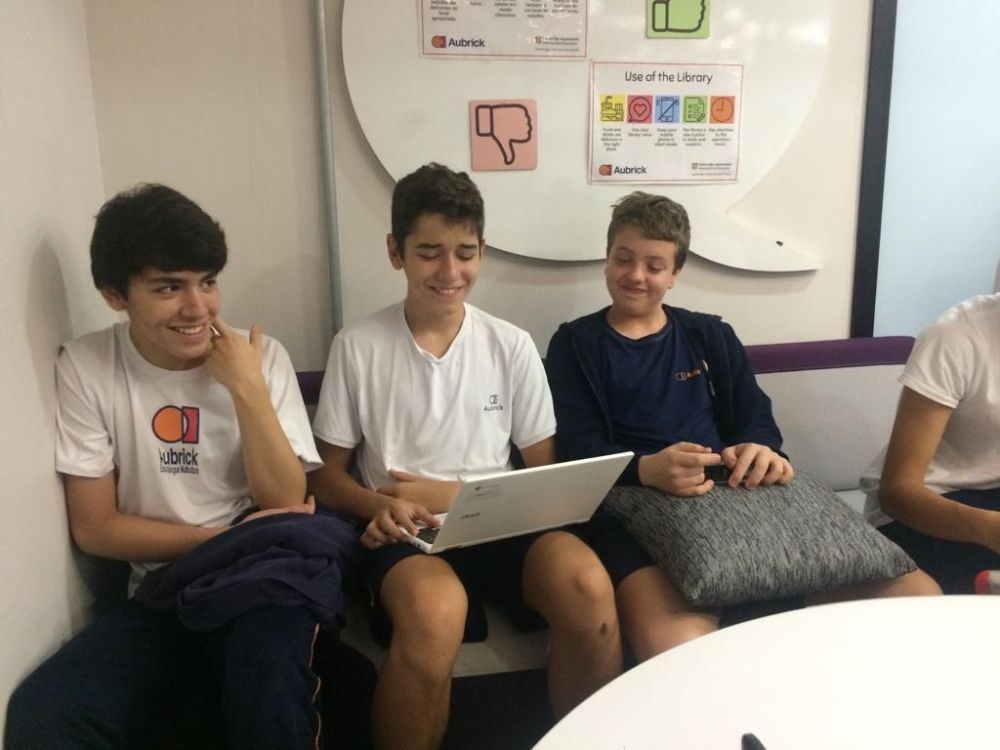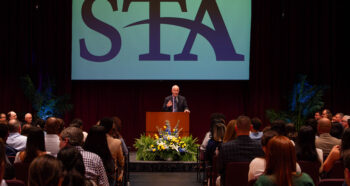“English can help me communicate with people from around the world and obtain information I wouldn’t otherwise have access to,’ says Ng Jun Yuan, one of the students we interviewed in the latest Cambridge Outlook magazine. Like thousands of other Cambridge students worldwide, he is learning through a second language – English.
Bilingual education creates challenges for educators as well as global opportunities for learners, and it’s why we chose to make it the theme of September’s issue of the magazine.
As part of our In Focus section, Peeter Mehisto, Honorary Research Associate at University College London Institute of Education, champions bilingual learning and gives advice to schools wanting to set up bilingual education programmes. There are also practical tips from Paul Ellis and Helen Rees-Bidder on promoting the listening and speaking skills in the classroom that will help students in the real world.
At Cambridge International, we encourage all of our young learners to look beyond their individual context and adopt a global perspective. Learning a second or third language can help develop this mindset, especially if the language learning gives insight into other cultures.
One Cambridge International School – Aubrick Escola Bilingue Multicultural – based in Sao Paulo, Brazil, recently contacted us regarding their experience of language and learning. They used a literacy project to forge connections with a unique school in the USA and shared with us their experience of the power of language and literature to connect different people, cultures and ideas.

Jaqueline Carlos, Year 9 English teacher at Aubrick, explains how the project came about:
“The Year 9 students were working with different poetical forms – Haikus, free verse, limericks, odes, Shakespearean sonnets – and I wanted to do something exciting, engaging and relevant. April is poetry month in the United States, so we had the idea to get in touch with a school in the US, with the initial aim of sharing poetry.
“We linked up with a distinctive school – Cheyenne River Sioux Reservation in South Dakota – where learners speak both English and Lakota (an endangered language that was prohibited from 1890 until 1990 and is now promoted). Students from both schools accepted the challenge of writing their own poems and sharing their work with the other school via Skype or Zoom.
“For some, exploring language through poetry was a natural process. Others found it more challenging. But all students worked hard to produce something they were proud of, that they could show to their families and share with the other school. At the end of the exercise, the learners felt empowered.
“We took many other positives from the experience. Students wanted to learn more about native American culture, what life is like living on a reservation and the Lakota people’s struggle to keep their language alive. Learners shared a few words and expressions in Portuguese with their US counterparts. Similarly, we learned a little of the Lakota language. How fitting that the word ‘Lakota’ means friend or ally.”
Is your school working alongside a school in a different country to help students develop global perspectives? We always love to hear from schools. Do get in touch at outlook@cambridgeinternational.org





